An SMS short code is a five- or six-digit number used in SMS and MMS marketing.
Marketers often use them for data capture: customers are encouraged to opt-in for SMS marketing by texting a keyword to a short SMS number (e.g. “Text FASHION to 72404 for the latest trends and offers”). Because they’re shorter than regular phone numbers, they’re easier to remember, so it’s more likely people will text in to sign up.
And they’re also used for sending SMS and MMS messages at scale, helping you reach the widest possible audience.
While SMS short codes are nothing new, they’re becoming increasingly relevant given the stamping-out of third-party cookies. For years, third-party cookies have been a comfort blanket for marketers—and now they’re on the way out, many brands feel lost.
But you know what they say: as one door closes, another one opens.
Sure, third-party cookies are dying a death, but that just means we have to find new ways to reach and nurture customers. And SMS is one of the best ways to do that.
To give you a few reasons why:
- 91 percent of consumers are interested in signing up to receive text messages from brands.
- 90 percent of messages are read within the first three minutes.
- One study found that Americans check their phones 344 times per day on average.
SMS short codes are one of the main tools to send SMS marketing campaigns. So, of course, you need to understand them.
Here you’ll learn everything you need to know about SMS short codes and how to get the most out of them.
I’ll also compare SMS short codes with other types of numbers businesses use to send text messages to customers.
What Is an SMS Short Code?
An SMS short code is a five or six-digit number that a brand uses for SMS marketing campaigns. By contrast, a long code or toll-free number consists of 10 digits.
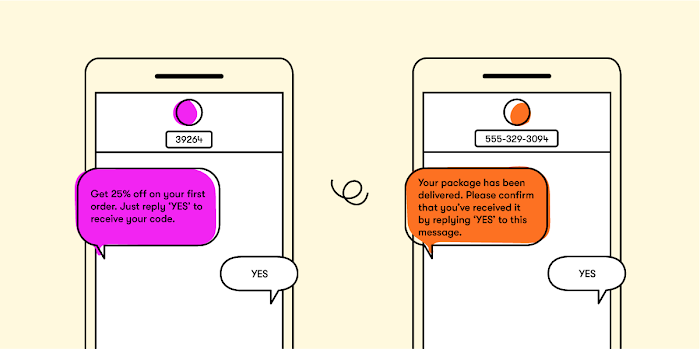 Consumers must opt in to receive messages from a brand by sending a keyword to its short code number. These are often automated SMS messages and part of a marketing sequence.
Consumers must opt in to receive messages from a brand by sending a keyword to its short code number. These are often automated SMS messages and part of a marketing sequence.
What Are the Benefits of SMS Short Codes?
Okay, so we know SMS messaging is one way to close the third-party-cookie-shaped hole in your marketing strategy. But let’s take a look at the specific benefits of using SMS short codes:
- Send messages at scale. Short codes allow you to send messages quickly and at scale (approximately 100 messages per second), helping you reach hundreds or thousands of recipients at relatively low cost.
- Share time-sensitive messages. Got an announcement you want your audience to see there and then? SMS short codes are your best bet because they mean your messages land in the inbox in seconds. And once they arrive, most will be opened in just a couple minutes. You don’t get that sort of immediacy with most marketing channels.
- Provide a simple signup process. Because they’re memorable, SMS short codes give your audience an easy way to opt-in to your SMS marketing campaigns.
- Avoid message filtering. Unlike toll-free and 10DLC numbers (more on them later), SMS short codes currently aren’t subject to message filtering because every code and sender is manually vetted by all wireless carriers as part of the application process.
- Choose your own number. Vanity short codes allow you to pick your own combination of digits, giving you a better chance of choosing something that’s easy to remember.
- Build brand awareness. Short codes—especially vanity codes—allow subscribers to quickly identify messages from your brand, helping you grow awareness. Even if recipients don’t open a message, they’ll still see your number in their inbox.
- Keep your SMS short code for life. Like your brand email address, you can retain your short code even if you switch to a different SMS provider, preventing disruption to your campaigns.
Short Code vs. Long Code Numbers: Which Should You Use?
There’s no doubt that SMS short codes are beneficial. They, undeniably, have the best throughput of all types of texting numbers.
That means, if you have a ton of SMS subscribers and need to send messages on a large scale (more than 3,000 a day), short codes are the right choice. This may be the case if you run a large ecommerce business, for instance.
However, 10 DLC numbers are ideal for SMBs that want to automate SMS marketing without paying through the nose for it. With a 10DLC number, you can still send one-off campaigns, alerts, two-factor authentication messages, automated responses, and use automated workflows.
What’s more, it only takes 48 hours to register a 10DLC number, compared to six to eight weeks for a short code. Hence, it’s the better choice if you want to avoid a lengthy application process and get started with SMS marketing right away.
10DLC numbers are also superior to unregistered long codes. This is because your messages won’t get blocked by the spam filters regular long numbers are subjected to when you try to send messages at scale.
And as for toll-free numbers, the lack of MMS is a problem. Images are key to SMS marketing. You can send appealing product images, eye-catching graphics to promote deals, images that convey your brand identity, and more with a 10DLC number.
How Do You Get an SMS Short Code Number?
You must apply to lease a short code from the US Short Code Administration. As part of the application process, you’ll need to share information on how you’re going to use the short code. For instance, if you’ll use the short code for customer care, marketing, etc.
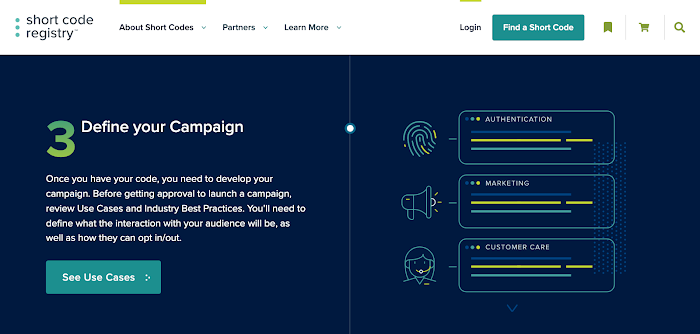 You’ll also need to share what types of media you’ll be sending out to customers.
You’ll also need to share what types of media you’ll be sending out to customers.
When the administration approves your information, you can launch your short code. At this point, you’ll need to register the code with the different telephone carriers.
Alternatively, you can enlist a third-party SMS provider or aggregator to acquire a short code on your behalf. In most cases, it doesn’t cost any more going through an intermediary—plus they’re well versed in the application process, so you might save yourself some time, too.
Types of SMS Short Code and Other Company Numbers
Short codes aren’t the only choice for running SMS marketing campaigns. Sending options vary from one country to another, but in the US, you can choose between:
- SMS short codes (including vanity and non-vanity short codes)
- Toll-free numbers
- 10DLC numbers
So which is the best choice for your SMS marketing strategy? Let’s compare and contrast those three options…
| Number type | SMS short code | Toll-free | 10DLC |
| Length | 5 – 6 digits | 10 digits | 10 digits |
| Cost | $500 – $1,000 per month | Free | $10 per month |
| Send rate | Send 100+ messages per second | Send ~50 messages per second | Send ~10 messages per second |
| Carrier filtering Y/N | No | Yes | Yes |
| Approval process Y/N | Yes | No | Yes |
| Approval time | 3 – 4 weeks | Instant | 48 hours |
Dedicated Short Codes
Dedicated short codes are leased by your brand and your brand only. Multiple companies used to be able to use the same short code at a more affordable rate, and these were called shared short codes. But shared short codes have been phased out by phone providers, so they are no longer available.
Vanity vs. Non-Vanity Short Codes
A vanity short code is a specific number chosen by the brand. It may be a number that’s easier for consumers to remember.
For instance, AT&T once used the number “567890” for a sweepstake campaign.
Or a vanity short code may be related to the brand in some way. Disney once used a short code that spelled out the word Disney with the numbers on the keypad. So it would’ve been “347639.”
A non-vanity short code is simply a code that’s randomly assigned to the business when it applies for a short code. As mentioned above, random short codes are cheaper to lease.
Toll-Free Numbers
Toll-free numbers are the 1-800 numbers that brands sometimes use.
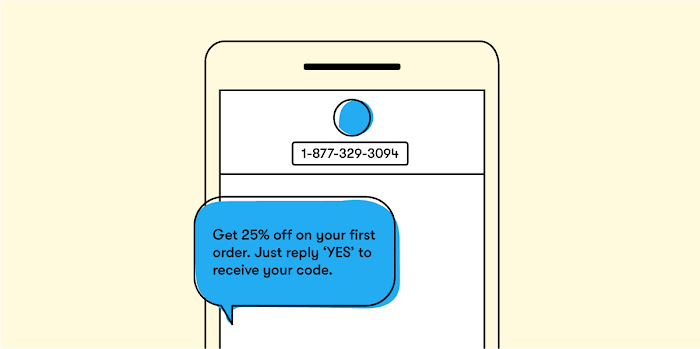 You can use them to send SMS at a slightly faster rate than standard long codes. Long codes have a throughput of one message per second, while toll-free numbers have a throughput of around three messages per second.
You can use them to send SMS at a slightly faster rate than standard long codes. Long codes have a throughput of one message per second, while toll-free numbers have a throughput of around three messages per second.
However, the problem with toll-free numbers is they don’t support MMS, unlike SMS short codes and 10DLC numbers.
10DLC Numbers
A 10DLC number is a long code number that’s used for commercial purposes. When businesses use software to send text messages, the number is referred to as an A2P 10DLC number.
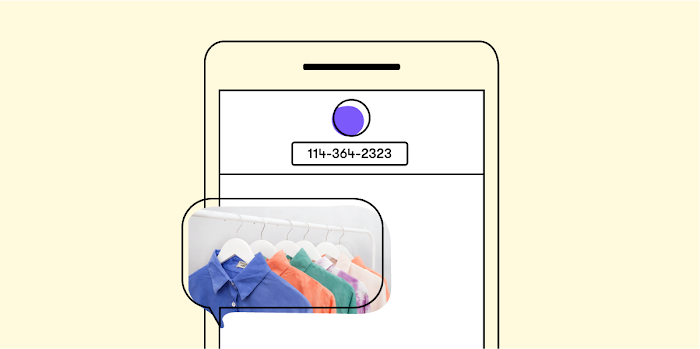 You must register to receive a 10DLC number. This provides you with a stable and secure number and also protects users from receiving spam messages they didn’t sign up for.
You must register to receive a 10DLC number. This provides you with a stable and secure number and also protects users from receiving spam messages they didn’t sign up for.
A2P 10 DLC numbers now have a higher throughput. They allow you to send up to 3,000 messages per day and have a 40x higher per second delivery speed than unregistered long codes and toll-free numbers.
8 SMS Short Code Best Practices
Decided short codes are the right fit for your brand? Consider these best practices before building your first campaign…
1. Adhere to Short Code Compliance Rules
You must comply with any local or federal laws pertaining to SMS messaging, such as the rules under the Telephone Consumer Protection Act (TCPA). It’s illegal to send spam messages and you can be fined up to $1,500 if you fail to comply.
Not only that, spamming your subscribers is a bad idea. You want to create a good relationship with customers through communications. If they lose trust in your brand, they’ll no longer purchase from you.
2. Advertise Your Short Code Number
To be able to reap the benefits of SMS marketing, you need as many people to sign up for your SMS program as possible. Achieve this by promoting your short code in a strategic way.
First, you could run a giveaway that requires an SMS opt-in. Share this giveaway with your email list and/or social media followers.
Chipotle, for instance, sent the following campaign out to students on its email list. Users had to text its short code to be in with a chance of winning a gift card.
Another option is to set up a VIP club where members receive special discounts, early access to new lines, and so on via text.
Customers can sign up for Tommy Hilfiger’s loyalty program online or by texting the short code the company advertises in its stores. Members receive messages with exclusive discounts, as in this example:
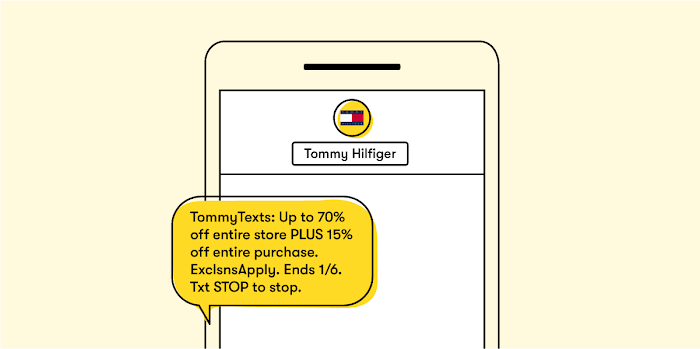
3. Use Keywords to Track Campaigns
Use different keywords to track the source of SMS subscribers. This way, you’ll be able to measure how effective your campaigns are. I also recommend researching which channels are best for acquiring new subscribers. Lastly, remember to assess the ROI of your marketing efforts.
For instance, you may run campaigns on Twitter and Facebook and ask followers to send the words TWITTER or FACEBOOK respectively to your short code number.
Here, for example, Starbucks uses the custom keyword “WOOHOO” for a particular marketing campaign:
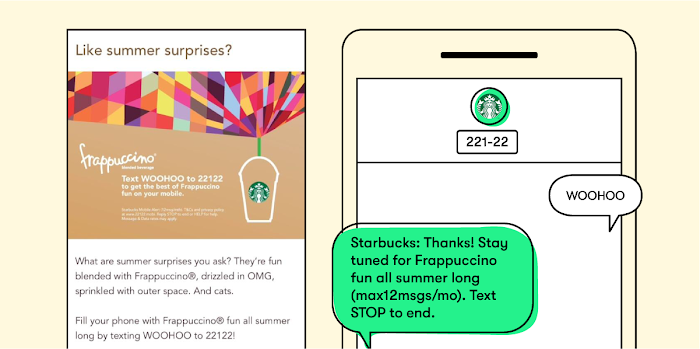
4. Choose a Memorable Vanity Short Code
Though it may still happen, it doesn’t really make sense to use a short code that spells out a word these days. Unless your customers use an old-school Nokia 3310, they won’t have the chance to spell out a word with the keypad.
But, it is a good idea to choose a memorable vanity code if you have the budget for it. Say, for instance, a customer sees the number in your brick and mortar store. You want them to be able to remember it later and still be able to sign up if they don’t do so straight away.
If you have a particular vanity short code in mind, then you can head to the US Short C0de Directory website and use the search function to see if your short code is available.
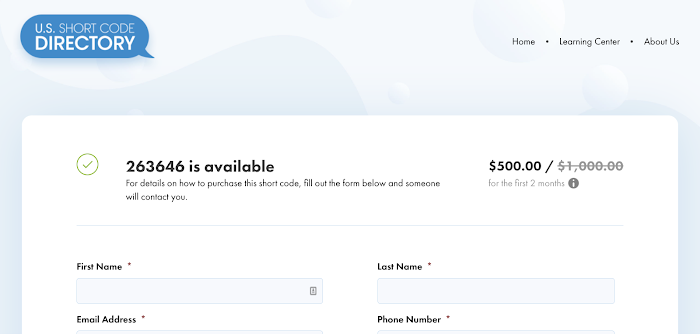
5. Use It to Send High-Volume, Time-Limited Messages
The main benefit of using a short code is the ability to send a ton of messages in a short space of time. This means you can use them strategically to send time-sensitive alerts or even time-limited offers.
Time-limited offers are effective as they use the idea of scarcity and urgency to encourage customers to make a purchase (before it’s too late).
In this example, Domino’s Pizza emphasizes the urgency by starting the message with “ENDING SOON!”
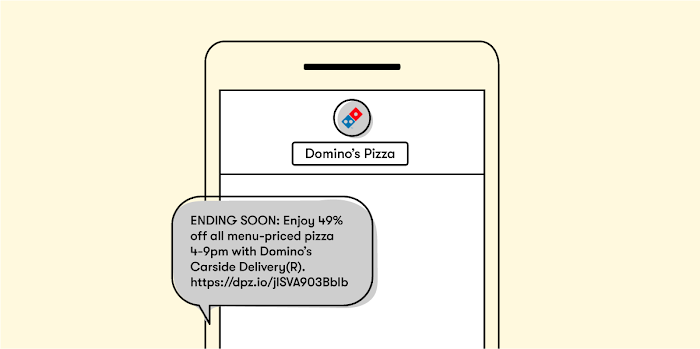 The high-throughout nature of SMS short codes also makes them an ideal fit for various other message types, including:
The high-throughout nature of SMS short codes also makes them an ideal fit for various other message types, including:
- Transactional messages. Order confirmations and shipping notifications need to arrive in a timely manner, making them well suited for SMS short codes.
- Customer support updates. SMS short codes allow you to communicate with customers in real time using two-way messaging and keyword-automated responses.
- Event messages. Running a live event (either virtual or in-person)? Use short codes to share invitations and reminders.
6. Improve Customer Service
The customer experience is everything in ecommerce these days. A positive experience sets your business apart from the hundreds of other stores in the same category.
The good news is that SMS isn’t just for promoting your products. You can also use your short code to provide quick, useful customer support.
Alternative bank Card One Money, for instance, allows customers to check their account balance via text when they text the word BALANCE to the company’s short code.
To give you another example, soft drinks company Britvic has its customers text the word BRITVIC and their zip code to its short code number to receive contact details for their local customer service rep. That’s a great example of personalized customer service.
7. Nail Your SMS Cadence
SMS campaigns can see open rates as high as 98 percent, which is pretty spectacular.
But you shouldn’t overdo a good thing.
Because SMS feels a lot more personal than email, there’s a far greater risk of customers opting out if you start bombarding them. In fact, receiving too many messages is the #1 reason for consumers to unsubscribe from SMS campaigns, cited by 73 percent of respondents.
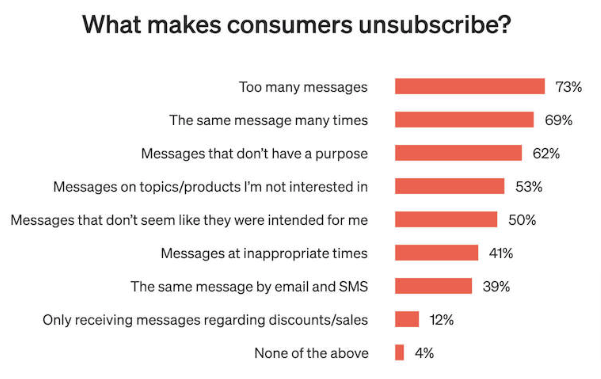 Read the rest of that list and you’ll notice several other factors related to the timing and frequency of SMS messages. All of which means it’s vital you get your cadence right.
Read the rest of that list and you’ll notice several other factors related to the timing and frequency of SMS messages. All of which means it’s vital you get your cadence right.
Which begs the question: how often should you send SMS campaigns?
According to Upland Software, brands tend to see significant increases in unsubscribe rates once they exceed 10 – 15 SMS messages in a 30-day period, so you probably shouldn’t send more than one message every couple days.
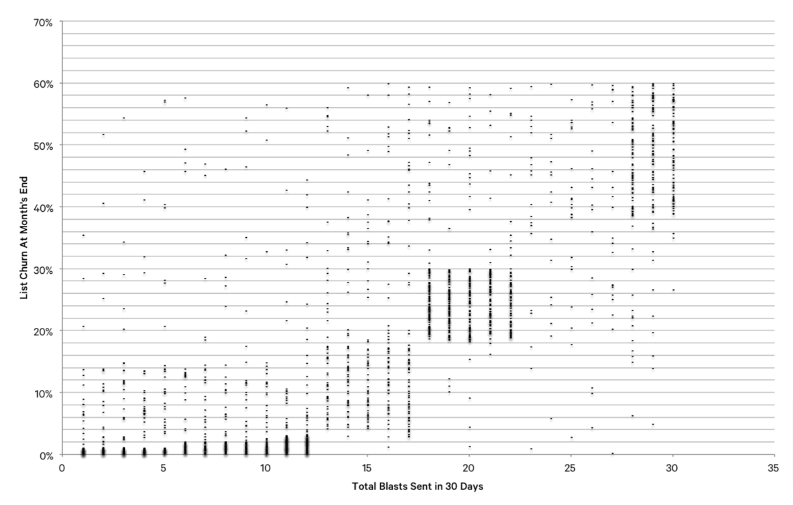 When you first begin sending SMS short code campaigns, start from a low base—say, one more per week—before ramping up slowly. Test different frequencies and timings, and back off when you notice a dip in opens, clicks, and revenue (if relevant).
When you first begin sending SMS short code campaigns, start from a low base—say, one more per week—before ramping up slowly. Test different frequencies and timings, and back off when you notice a dip in opens, clicks, and revenue (if relevant).
8. Leverage SMS Automation
Automation allows you to send highly personalized SMS messages to individual subscribers at scale using event-based triggers, such as when a customer places their first order or abandons their shopping cart.
This is a big deal, because consumers crave personalization. Three-quarters expect brands to understand their unique needs and preferences, while three in five are likely to become repeat buyers following a personalized shopping experience.
SMS Short Code FAQs
SMS short codes cost $500 per month to lease for a non-vanity (i.e. random) short code and $1,000 per month for a vanity short code. SMS short codes are typically leased on a quarterly basis. You can’t buy them outright.
Other countries do indeed use short codes. However, you have to apply and pay for a short code in each country separately.
To create a consistent brand experience, you may wish to use the same short code in different locations. However, you may find that your short code is already taken in another country. Therefore, it may be a good idea to do your research and change your number to one that’s available in multiple countries.
As you’ve seen, opting in usually involves customers sending a keyword to the short code number. In some cases, they may also register by entering their phone number online. When a user opts in, they consent to receive future messages from your brand.
By law, you must also have an option for users to opt out of receiving messages. This generally involves the user texting a specific keyword chosen by you, such as “UNSUBSCRIBE,” “STOP,” or “CANCEL.” You’ll be able to send a final automated response that confirms the subscription.

Final Word
All in all, it’s a good idea to use a 10DLC number as a starting point if you want to set up an SMS marketing strategy. As your business and/or subscriber list grows, you may wish to consider other options.
Yet, with the advancements that telephone carriers are making in terms of delivery and throughput for long code numbers, who knows, you may be able to stick with a more affordable 10DLC number.
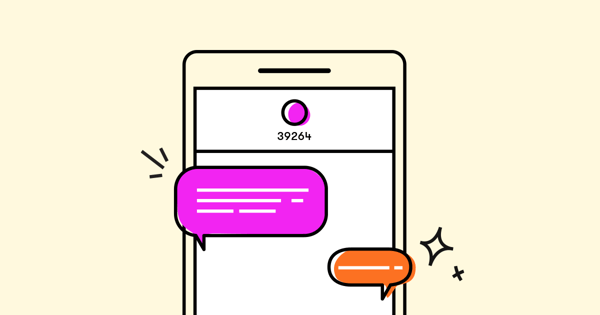

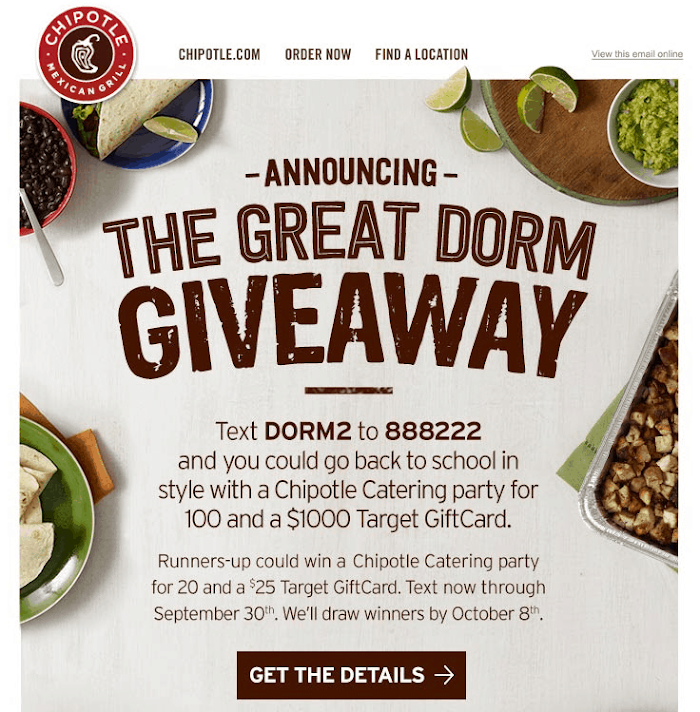 (
(
